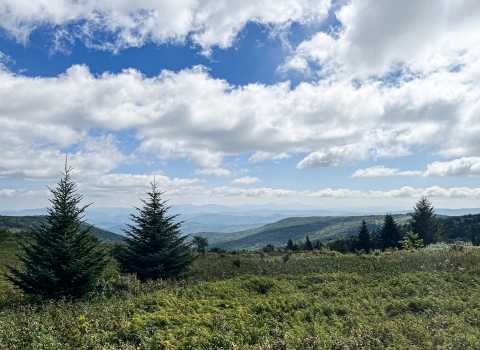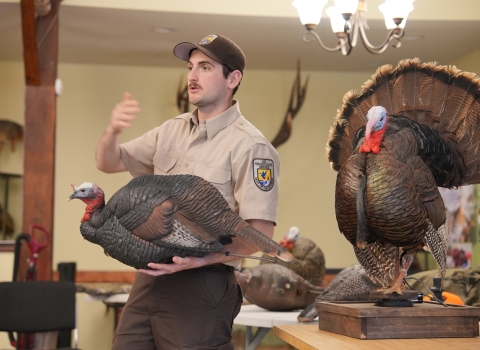The shipment was declared as “gifts,” but U.S. Customs and Border Protection agricultural specialists weren’t convinced. They referred the large cardboard box to U.S. Fish and Wildlife Service (Service) wildlife inspectors, who peered into the container only to discover baby formula cans lined with aluminum foil. They opened one. Inside was a white athletic sock.
Inside that: Terrapene carolina mexicana, a Mexican box turtle tightly wrapped in duct tape. The rare turtle, and 19 more, were being illegally shipped through the United States en route to Asia at the Port of Memphis in Memphis, Tennessee.
The two federal agencies followed that March 24 discovery with a comparable seizure on April 2. This time, they uncovered 16 Mexican box turtles, also wrapped in socks and trapped in duct tape. Their shipping documents described them as “spare parts for hydraulic pumps.”
On April 20, CBP transferred a third shipment to the Service. A wildlife inspector uncovered six more Mexican box turtles in a shipment falsely labeled as “spare parts sewing machines.” The turtles also were wrapped in duct tape, stuffed into socks and hidden inside ventilated baby formula cans lined with aluminum foil.
“Wildlife trafficking is a serious crime that impacts imperiled species across the globe,” said Edward Grace, the Assistant Director of the Service’s Office of Law Enforcement. “In this case, rare turtles were illegally smuggled into the U.S. The inhumane conditions in which they arrived shines a light on the dark and tragic world of the illegal wildlife trade. I would like to thank U.S. Customs and Border Protection, the Memphis Zoo, FedEx and our Service wildlife inspectors for their assistance with this case. Together, we can protect at-risk species for future generations.”
The discoveries underscore what surprises may await officials at the port, said Mike Neipert, the CBP’s Director at the Port of Memphis.
“CBP officers and agriculture specialists never know exactly what they might encounter on a given day,” he said. “We work closely with our partner agencies such as the Service to ensure that trafficking laws are enforced effectively, especially when it comes to endangered or regulated species. We’re glad that this joint effort resulted in these turtles being placed into a safe and caring environment.”
Since their discovery, the turtles are being cared for at the Memphis Zoo. One died, weakened by the strain of its smuggling from Mexico to Memphis.
“We were pleased that the Memphis Zoo could offer assistance in stabilizing and treating these smuggled turtles,” said Chris Baker, Assistant Curator of the Memphis Zoo. “When they arrived, they were dehydrated and underweight from the holding and shipping conditions. Once they conclude treatment and become stable, they will be distributed to AZA partner zoos with expertise in caring for the species.”
Mexican box turtles are found only in eastern Mexico within the states of San Luis Potosi, Tamaulipas and Veracruz. They live in dry lowland habitats, including tropical deciduous forest and thorn forest and scrub. However, in Veracruz, the species is also found in humid tropical habitats including rain forest.
Unfortunately, their geographic range is traversed by roadways, subjecting the turtles to road dangers and illegal collection. It is rare to find the species outside of Mexico. Their export from the country has been banned, and their presence in the legal pet trade is next to non-existent.
Mexican box turtles are listed under Appendix II of the Convention on International Trade in Endangered Species of Wild Fauna and Flora (CITES). Appendix II species are defined as species that may become threatened with extinction without international trade controls.
No one is certain precisely where the smugglers caught the turtles, so they cannot be returned to their original homes. For now, the surviving turtles are safe at the Memphis Zoo where they will help educate the public about the illicit nature of the illegal wildlife trade.
If you suspect someone is illegally importing wildlife, plants or any other species, please call the Service’s wildlife trafficking tips line at 1-844-FWS-TIPS (397-8477) or email fws_tips@fws.gov. You might be eligible for a financial reward if your tip helps solve a case.




